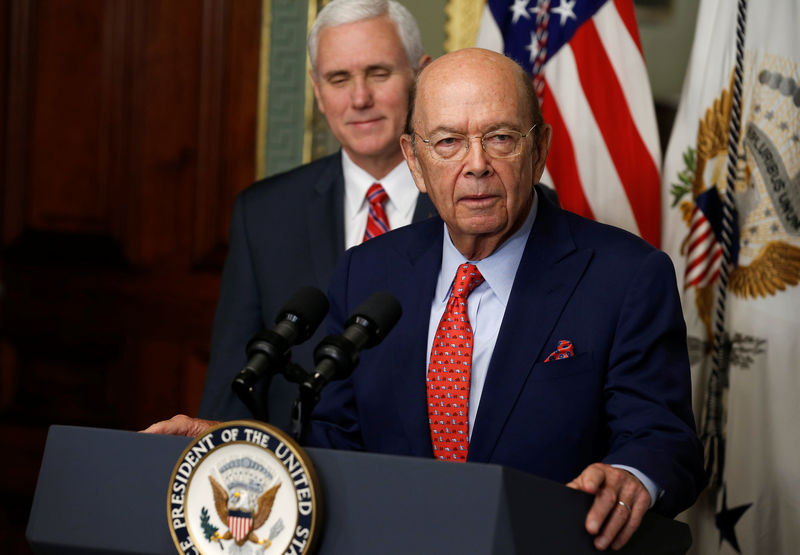By David Lawder
WASHINGTON (Reuters) - New U.S. Commerce Secretary Wilbur Ross said President Donald Trump did not endorse a proposed border tax system on Tuesday in his first speech to Congress on Tuesday, despite a vow to level the tax playing field for U.S. companies that export.
Ross, speaking to reporters after the speech, said that Trump was merely pointing out an export tax inequity between the United States and many other countries, not specifying how it should be remedied.
Trump said he was asking for a change in the way U.S. imports are taxed, saying that other countries "make us pay very high tariffs and taxes," but the United States charges "nothing or almost nothing" on imports.
Trump referred to tariffs of 100 percent by some countries on U.S.-made Harley-Davidson Inc (N:HOG) motorcycles, saying that the company was used to being "mistreated" in foreign markets.
"They weren't even asking for a change, but I am," Trump told the joint session of Congress.
Asked if Trump's remarks on the topic effectively endorsed a plan by House of Representatives Republicans to levy a border tax of about 20 percent on imports into the United States, Ross said, "No, he did not."
"What he addressed was the issue that needs to be solved, which is there's inequitable treatment of the U.S. Other countries have a value-added tax which they rebate on exports," Ross said.
He said the World Trade Organization has turned down past U.S. requests to allow American companies to deduct income taxes paid on exports.
The proposed border tax is under attack from import-heavy businesses but is supported by large exporters, such as manufacturers.
"Border advisability, other programs are possible ways of solving that. But I didn't hear him coming out clearly in favor of any one system," said Ross, who was sworn in earlier on Tuesday.
Trump has not clearly endorse or opposed the border tax proposal, although he spoke favorably of it in a Reuters interview. He has also called the proposal "too complicated."

Asked if WTO compliance was a crucial factor in the solution, Ross, a billionaire investor and corporate turnaround expert, said that the first negotiation over export tax would be with Congress.